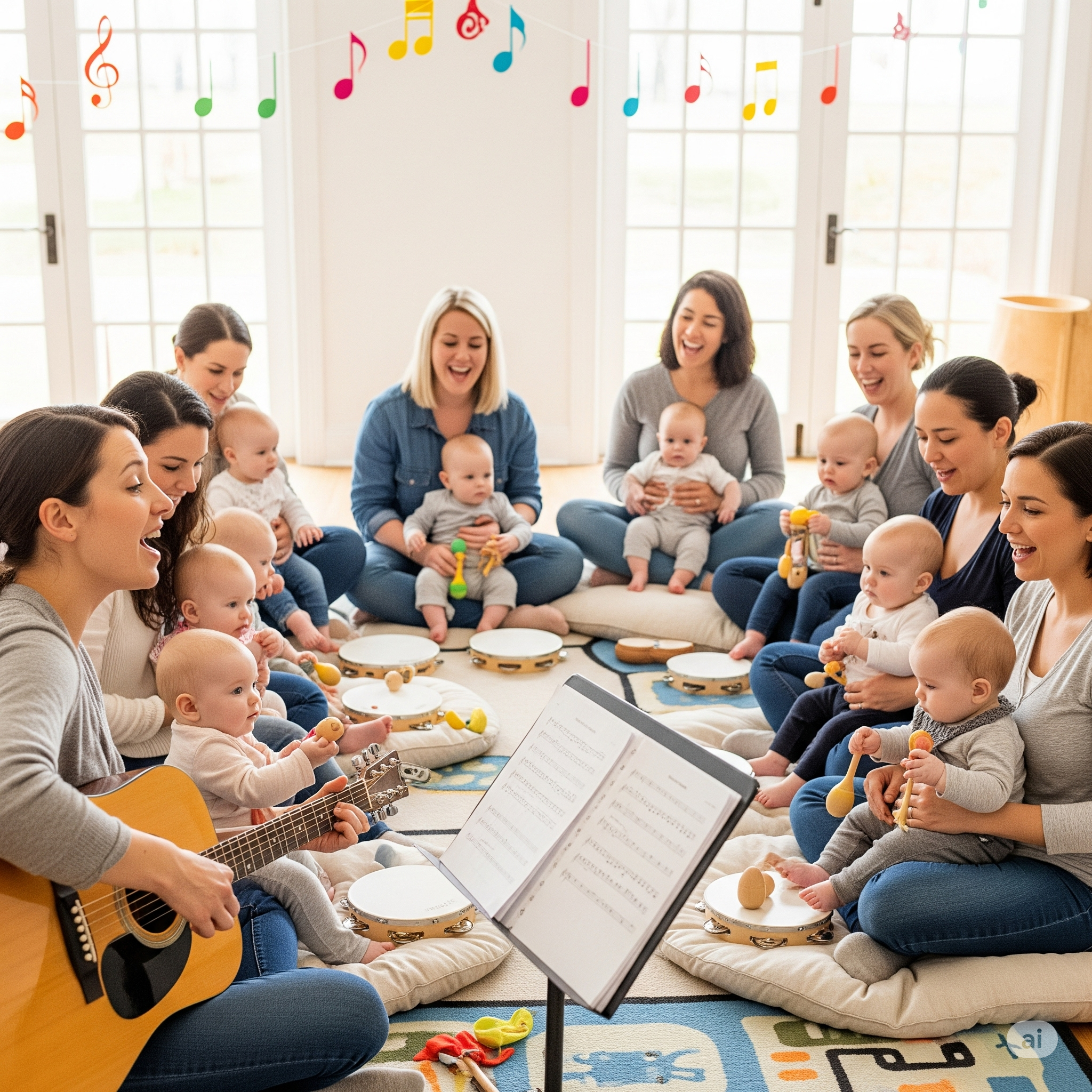
PlanO Playbook: Top Activities for ages 0-5 years
Extracurricular activities offer children enriching experiences outside of school, fostering skills and interests that support their development. Research confirms that participation in extracurriculars is linked to positive academic, health, and social outcomes.
Ages 0–5: Early Childhood (Infants, Toddlers & Preschoolers) At this stage, the best “extracurriculars” are really play-based, caregiver-participatory classes that build social, motor, and language skills in a fun, no-pressure way. Many parent-and-child classes in this age range help toddlers practice sharing, taking turns, and interacting with peers. Parents often attend sessions with their little ones, both to bond and to support the child’s learning. The goal is to introduce kids to group settings and new experiences while meeting developmental needs like verbal skills, motor coordination, and social play.
Below are the top-rated activities for ages 0–5 and why they’re great for young children:
-
Music and Movement Classes: Singing, dancing, and rhythm games are fantastic for infants and toddlers’ language and motor development. Little ones love clapping and moving to music, and in the process they gain coordination and early listening skills. These classes also provide a social outlet – many toddlers learn to follow simple instructions and enjoy group fun through music. Parents in Seattle rave about programs like Sunshine Music Together, an 8-time award winner where “the youngest learners (0–5) explore songs, instruments, rhythm and dance” in a playful setting. Such classes nurture auditory skills and self-expression, and parents should plan to participate alongside their child.
PlanO Pro Tip: Use Trial Class filter to look for classes offer a free trial. Select a program that offers trial class and caregiver participation - Seattle families often find a welcoming community in these music meetups.
-
Swimming Lessons (Parent–Child Swim): Introducing infants and toddlers to water in a gentle swim class can be both fun and potentially lifesaving. Water acclimation classes build motor skills and water confidence at an early age, which helps prevent fear of water and lays the groundwork for safety. In these classes (often starting from 6 months up), a parent or guardian joins the child in the pool under a trained instructor’s guidance. The benefits include improved coordination, muscle development, and bonding through skin-to-skin contact. Seattle-area parents prioritize swim lessons given the abundance of lakes and pools – programs like Settle Parks and SwimGuru (with multiple Puget Sound locations) are highly rated for their gentle, child-centered teaching that focuses on safety and confidence in the water.
PlanO Pro Tip: Use Indoor/Heated pool filter in PlanO to see which swim schools offer this feature. Sign up early as spots can fill quickly. Bring swim diapers, goggles, and towels, and expect a short lesson duration (15–30 minutes) appropriate for young attention spans.
-
Gymnastics, Dance & Toddler Sports: Activities that get little bodies moving are extremely beneficial for gross motor development at this age. Toddler gymnastics or movement classes (such as those at The Little Gym or community centers) let kids tumble, climb, and balance in a safe environment – building strength, balance, and confidence. Even simple “pee-wee” sports play, like tot soccer or chase games, help develop coordination and listening skills. For example, 3-year-olds kicking soft balls or running an obstacle course are not just having fun – they’re improving hand-eye coordination and learning to follow directions. Seattle parents often turn to programs like Seattle HappyFeet for preschool soccer or the Creative Dance Center for movement/dance classes.
PlanO Pro Tip: Read about instructor's experience on PlanO. At this age, choose low-competition, high-fun classes. Parents should be prepared to assist or at least cheer from the sidelines – many toddler sport classes require adult participation or supervision.
-
Arts and Crafts Classes: Little kids are naturally creative (think finger-painting and play-dough), and enrolling in an art “messy play” class can boost their fine motor skills and creativity. Crafting – whether coloring with crayons, squishing clay, or gluing and glittering – helps toddlers develop hand strength and hand-eye coordination. It’s also a wonderful sensory experience and outlet for self-expression (toddlers feel proud when they create something!). At this age the process matters far more than the product, so good programs keep it fun and safe (using non-toxic, washable materials). In Seattle, many community centers and children’s museums host toddler art sessions, and local studios like Roaring Mouse Creative Arts (a longtime favorite in Seattle’s Ravenna area) offer caregiver-and-child art workshops.
PlnaO Pro Tip: Read reviews on PlanO to select the right class for your LO. Dress for mess (old clothes for you and your child) and be ready to participate – you may be helping hold the paper or demonstrating with your own artwork. Encourage your child but let them lead; the goal is to explore textures and colors freely, building fine motor control in a joyful way.
Seattle-specific tips for 0–5: The Seattle area is rich in toddler programs. Aside from the examples above, parents highly recommend free or low-cost playgroups like Kaleidoscope Play & Learn (offered at community centers and libraries) where caregivers and tots meet for organized play and socializing. Indoor playgrounds (such as Seattle’s community center tot gyms) are a winter lifesaver, letting little ones run and climb when it’s rainy. Seasonally, even the youngest kids enjoy outdoor strolls – Seattle’s toddler-friendly nature walk programs (e.g. zoo or farm toddler days) combine fresh air with sensory learning.
At this age, keep schedules flexible: one or two classes per week is plenty, and make sure to allow downtown for free play at home. The emphasis should be on fun and bonding – building a positive attitude toward group activities that will carry into later years.